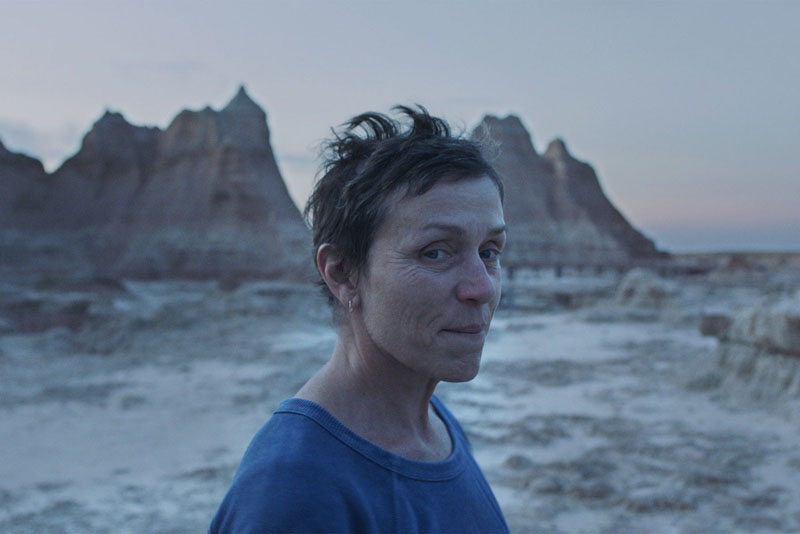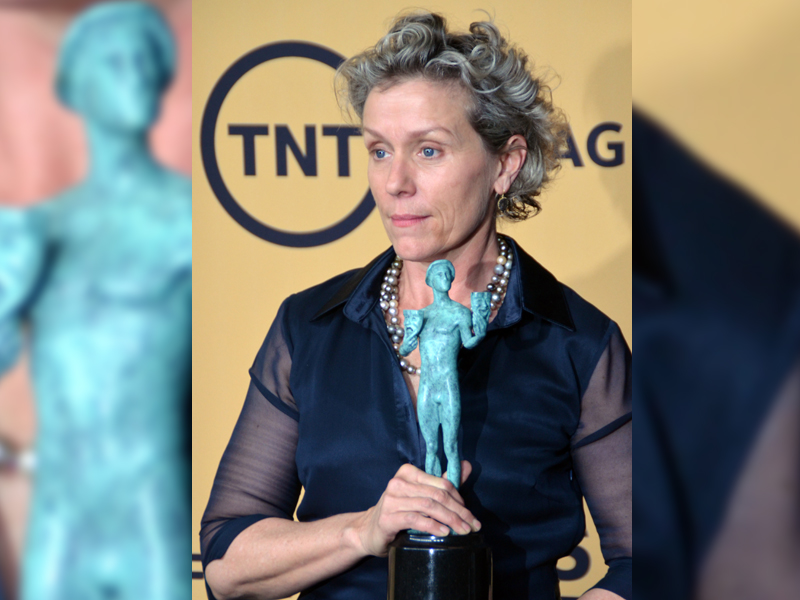 Nomadland
Nomadland
I want to die in an environment where my cellular structure can go back in and feed: Frances McDormand
During one of the conversations series organized by the 2020 Toronto International Film Festival (TIFF) , Cameron Bailey, Artistic Director & Co-Head of TIFF, discusses the film 'Nomadland' with American actress Frances McDormand, who played Fern exploring the vast landscape of the American West, in director-producer Chloé Zhao's intimate portrayal of life as a modern-day nomad. Our Toronto correspondent Asha Bajaj brings you the excerpts:
Cameron to Frances: Frances, one of the first things we learn about Fern is her freedom. We see her peeing on the side of the road, not caring about the world. She follows her own schedule in her job. But as the film progresses, we see more layers including her self-protective sense that may seem to others as freedom. Can you describe Fern at her core?
Frances: In the time that we spent together, I perceived a child-like quality in her that we were interested in for Fern. She has a set of very prescribed rules living in an empire, and once she hits the road the possibilities become open testing her sense of self-sufficiency. Our intention was to make the audience excited about the possibilities of seeing what was around the next corner and leave her alone to become more comfortable testing herself against those circumstances.
How close are you to the character that you are playing do you think?
There is always a part of every character that is true to some part of the actor's life. But in this, it was more. Chloe and I had created a kind of a baseline about Fern and then every situation had to be used as a trampoline.
We see more of Fern's past life on empire, and her family as the film moves along. I am curious to know if Fern jumped off that middle-class merry-go-round or was she pushed?
My perspective on this situation is completely different because the main difference between me and Fern was that I left home, and an American working-class background when I was 17 and never went back. Fern made one major choice of aligning herself and falling in love with a man named Boe, which determined the next 45 years of her life. The thread of me and Fern did not pick up until Fern is 61 when she decides to leave her home. Fern starts at 61 what I started at 17. But being a true nomad, when she finally left the house, it took her some time to figure out who she really is. Fern is still on the road towards the end of the film which is not going to be easy for her.

Fern seems to be at home there. Although the film portrays the reality of the work-life not only in the United States but the whole world during that time in terms of the employment situation and the security it offers, the film does not feel primarily a work of social commentary. How intentional that was and how hard you want it to go on that message?
My intention was to take my audience there, lead them, guide them, hold them by their hand, and then push them into a new perspective to let them make their own judgment of what they see and how it affects them.
It must have been difficult to plan and to actually travel to those places and also shoot within a fixed time. What do you have to say about that?
It was not traditionally a month or two-month shoot. We shot over 5 months in 5 states and had to wait for seasons to change and to elaborate on the idea of the landscape. And what I love most about the faces of Nomadland is that we are all mature. There is something about being there for a long time and being able to go back into it. One of the most important things for me as I get older is that I want to die in an environment where my cellular structure can go back in and feed. And there is no concrete and brick, it is dirt. So, I think that is a real testament. I also think that Chloe had a real connection to the cycle of human life. The exploration of the group of older people, seniors, or seasoned people is part of the desert landscape, which was a perfect place for us.
As a producer, what role did you play in the selection of a director and other casts and then putting the overall team together there?
We have a team of many producers but specifically 5, two of us, and 3 others. The most important thing I did as a producer was to listen to my partner Peter Spears’ suggestion to read the book Nomadland. After reading the book, I was connected almost immediately to the writer. Just with that synchronicity, everything fell in order and literally played out from there. But from day to day point of view I had to completely step back from my producorial position because I had too much to do. A collage of characters became our cast.
Support Our Journalism
We cannot do without you.. your contribution supports unbiased journalism
IBNS is not driven by any ism- not wokeism, not racism, not skewed secularism, not hyper right-wing or left liberal ideals, nor by any hardline religious beliefs or hyper nationalism. We want to serve you good old objective news, as they are. We do not judge or preach. We let people decide for themselves. We only try to present factual and well-sourced news.






